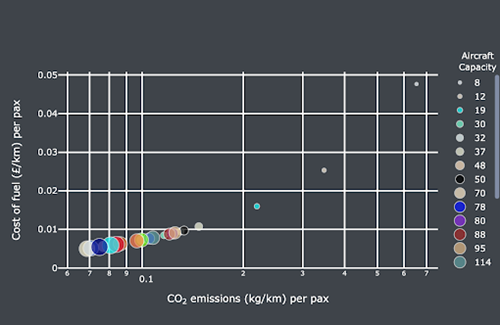To have the biggest and fastest impact on aerospace decarbonisation, new product development must exploit the wealth of data available in order to account for the market appeal aspect while building a sustainable aviation platform and focus less on building platforms with little regard for their market appeal.
While this sounds obvious, the decisions made about types of data used and the relative importance of different datasets can result in significant differences to the conclusions. So the data used must answer the right questions and with confidence if all the benefits are to be realised when future electric aircraft finally take to the skies.
To give an illustration of how market information can inform future developments, just before the Covid-19 crisis CFMS engineers analysed the profile of commercial flight operations at Glasgow Airport. The aim of the study was to identify a baseline business case for a regional electric aircraft that would meet the current operational requirement of a particular route and, at the same time, have a significant impact on reducing CO2 emissions on that route.

The flight data was used to create KPIs that form a baseline metric to compare flight routes, aircraft types, duration, etc. enabling the study to identify which regional aircraft operating from Glasgow had the highest CO2 emissions per passenger-kilometre. This data driven approach gave hard evidence that the regional air travel market is an ideal segment for a small hybrid-electric aircraft that would take the industry on its sustainable aviation journey to meet the 2050 net zero emissions target.
For more information on this study, download this article.